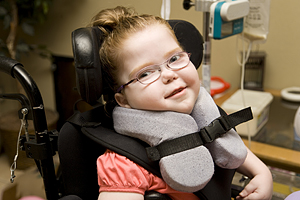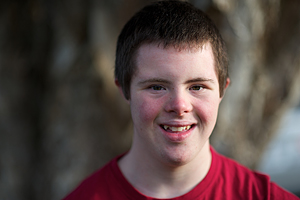Special Needs
FOSTERING CHILDREN WITH SPECIAL NEEDS
It takes a special foster parent to provide a child with special needs the services necessary for them to thrive. Will you consider making it your mission to minister to one of these children?
We’re dedicated to taking these children with special needs out of institutional settings, and placing them with caring, well trained foster families. It is our belief that in this environment cultivated by a loving, nurturing family, children will grow to reach their fullest potential.
PRIMARY MEDICAL NEEDS

Some children come into the foster care system with a serious, ongoing illness or chronic condition that requires specialized attention and the use of assistive medical equipment. Too many of these special needs children remain in hospitals or other institutional settings when what they really need is a committed, skilled, nurturing individual family home.
A child with medical or habilitative needs may require intermittent to regular interventions from a skilled caregiver who has demonstrated competence.The characteristics of these special needs children include one or more of the following:
- Occasional to frequent exacerbations or intermittent to intensive interventions in relation to the diagnosed medical condition
- Moderate to severely limited to inability to perform daily living and self-care skills
- Ambulatory with assistance or non-ambulatory or confined to a bed
- Daily to 24-hour/day access to on-site, skilled caregivers with demonstrated competence in the interventions needed by children in their care
DEVELOPMENTAL DELAYS / INTELLECTUAL DISABILITIES

Many of the children who come into the foster care system with developmental delays or intellectual disabilities (mental retardation) languish in emergency shelters. For these special needs children to grow in capabilities, they need to be with a loving family in a home setting.
The characteristics of these children include one or more of the following:
- Minor to severe difficulties with conceptual, social, and practical adaptive skills
- Minor to severe impairment in communication, cognition, or expressions of affect
- Lack of motivation or the inability to complete self-care activities or participate in social activities
- Inability to respond appropriately to an emergency
- Multiple physical disabilities including sensory impairments
EMOTIONAL DISORDERS

Many children with emotional disorders remain in residential treatment centers or emergency shelters while waiting for a family willing to invest the time and effort necessary to help them work through their issues
These are children with emotional disorders such as mood disorders, psychotic disorders or dissociative disorders, and who demonstrate three or more of the following characteristics:
- A Global Assessment Functioning of 50 or below
- A current DSM diagnosis
- Major self-injurious actions, including recent suicide attempts
- Difficulties that present a significant risk of harm to others, including frequent or unpredictable physical aggression
- A primary diagnosis of substance abuse or dependency and severe impairment because of the substance abuse
DO YOU HAVE A HEART FOR THESE KIDS?
These children need a structured supportive treatment setting, in a family home, in which caregivers are provided with specialized training to provide therapeutic support and interventions all aimed at improving the child’s functioning, to include:
- More than routine guidance and supervision, up to and including 24 hour/day, to ensure the child’s safety and sense of security
- Affection, reassurance, and involvement in structured activities appropriate to the child’s age and development to promote the child’s well-being
- Contact, in a manner that is deemed in the best interest of the child, with family members and other persons significant to the child to maintain a sense of identity and culture
- Access to therapeutic intervention and guidance from professionals or paraprofessionals that is regularly scheduled and professionally designed and supervised to help the child attain functioning appropriate to the child’s age and development
If you have the desire to learn more, and if you meet the qualifications below, we’d love to share information on how you can help. Please contact our Texas State Director of Health Care Services at [email protected].
Qualifications:
- Responsible, Mature and Healthy
- Non-smoker
- U. S. Citizen
- Must meet minimum standards of Texas Department of Family and Protective Services

ATTEND AN INFORMATIONAL MEETING
Each month, there are several interactive, live streaming webinars to learn more about foster care and what it takes to become a foster parent. In each webinar, you’ll get an overview of all of Arrow’s foster care programs. And because the webinars are interactive, you can have all your questions answered.



